For families navigating Baltimore’s housing landscape, policy isn’t abstract – it’s personal. That’s why we regularly host roundtable conversations connecting public officials with BRHP program participants. This June, we welcomed two of Baltimore’s top leaders – Mayor Brandon Scott and City Council President Zeke Cohen – for in-person dialogues focused on the urgent housing issues facing our families and communities.
Baltimore City Mayor Brandon Scott
On June 25, our organization welcomed Mayor Scott, who met directly with BRHP clients, staff, and members of the Board of Directors currently living in Baltimore City. Discussions were framed around some of the most urgent housing topics, as participants shared personal stories that brought their experiences to life and helped emphasize how city-level decisions shape their housing journeys. The Mayor spoke candidly about Baltimore’s legacy as the birthplace of redlining, stating, “Redlining was first signed into law in my office, where I sit every day,” and acknowledging the structural roots of housing inequality throughout the city. Mayor Scott went on to emphasize, “It’s about focusing on having a more equitable way of doing housing,” while outlining a vision that includes expanding access to homeownership for those historically shut out, creating new pathways to desegregate communities, and building new housing units across the city.

A central focus of the conversation was Baltimore’s persistent vacancy issue, which the Mayor called Baltimore’s “elephant in the room.” While the number of vacancies has dropped from 16,000 to about 12,600 under his administration—a significant achievement—he acknowledged that progress has been too slow and too piecemeal, “Now it’s time to bring those plans to scale,” he said.
Now, with a $3 billion investment in partnership with BUILD, his administration is taking swift action throughout neighborhoods in the ‘Black Butterfly’—a term coined by Lawrence T. Brown to represent how Baltimore’s majority-Black population is spread out like a butterfly’s wings on both sides of key real estate running down the center of the city. Through the city’s efforts like the Buy Back the Block project, tax incentives for communities with high vacancy rates, and taxing absentee property owners, Mayor Scott stressed the need for multi-pronged strategies to reclaim and rebuild communities from all angles. He also highlighted his collaboration with Councilman Ryan Dorsey on reforms aimed at loosening zoning requirements and expanding housing opportunities, noting this work is not to “ruin people’s neighborhoods” but to open doors for more inclusive development. Mayor Scott concluded by reaffirming the BRHP’s vital role in this work and committing to deeper collaboration.
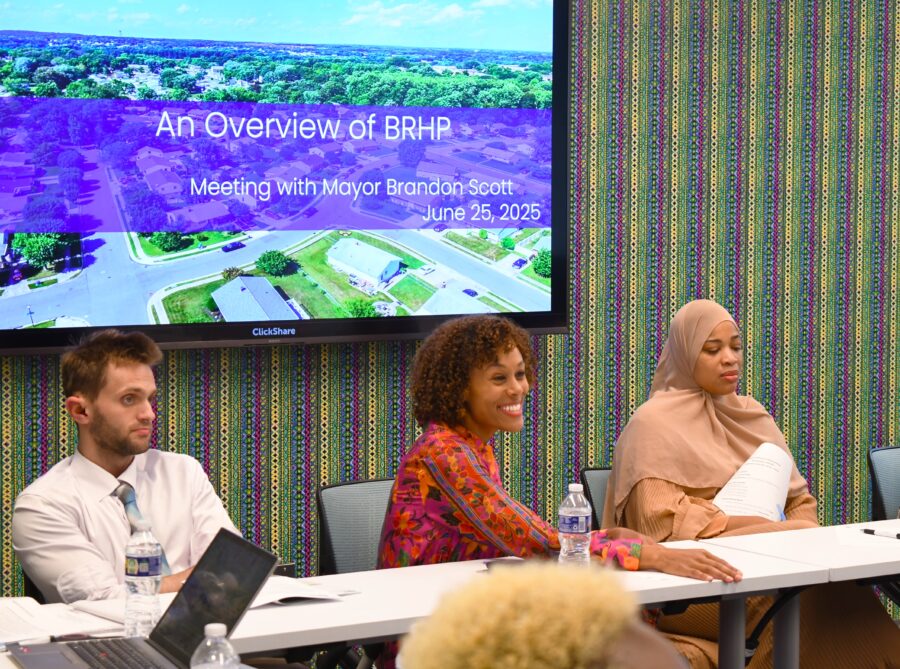
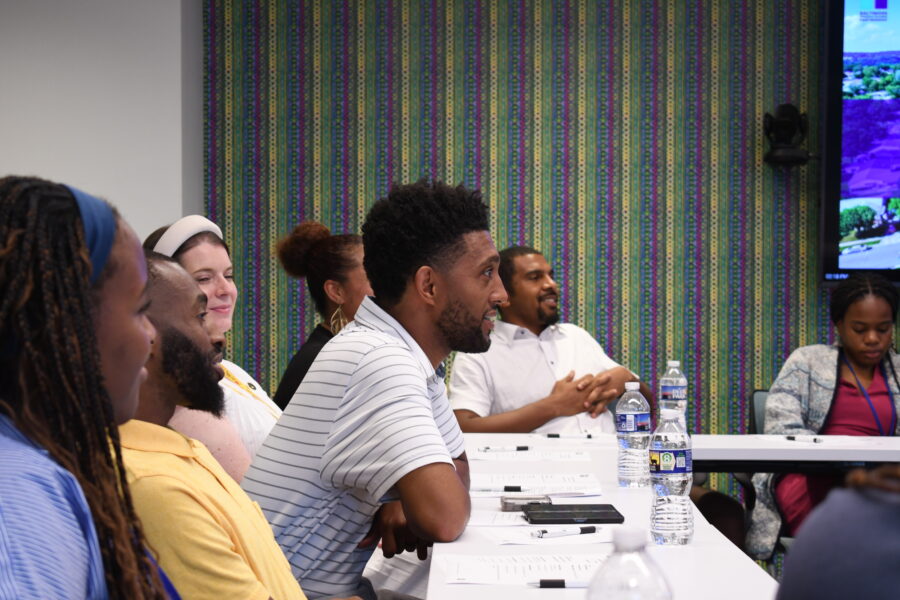
Baltimore City Council President Zeke Cohen
The second roundtable, held on June 27, welcomed City Council President Zeke Cohen to hear from participants and BRHP staff about policy changes and partnership opportunities within the city. President Cohen, joined by his young daughter, brought both a professional and personal lens to the dialogue on housing affordability. He shared a common perspective as a parent of two, acknowledging, “Everyone just wants to do the best by their kids,” and noting how the rising cost of living—including BGE and water bills— “all compounds and makes it difficult to be there [for the kids].” He then emphasized the City Council’s focus on preserving affordability in Baltimore and spoke to his ongoing collaboration with Mayor Scott on the Housing Options and Opportunity Act to ensure the city remains one of the more affordable urban cities on the East Coast.
Cohen emphasized housing as a key driver of both community stability and economic opportunity. “We want to grow our population, while retaining those who live here,” he said while underscoring Baltimore’s potential to revitalize itself through its vacant housing stock. Cohen pointed to the recently approved Baltimore City budget, which includes increased funding for initiatives like Live Baltimore’s Buy Back the Block, aimed at reclaiming and reinvesting in vacant properties across the city. For him, meaningful progress means building a city for Baltimoreans and by Baltimoreans.
As the conversation progressed, zoning reform emerged as another key focus and concern. In response, Cohen emphasized the importance of increasing housing density while preserving the character of Baltimore’s historically ‘blue-collar’ neighborhoods. Efforts include easing outdated parking requirements, allowing homeowners to subdivide properties, and creating more flexible development pathways. These changes, he explained, are aimed at building a more inclusive housing landscape that meets residents where they’re at.

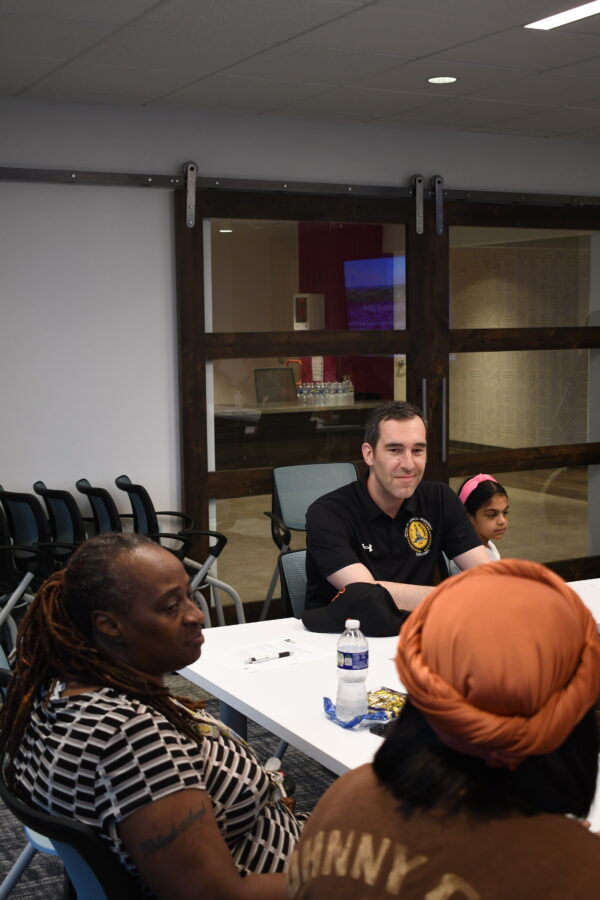
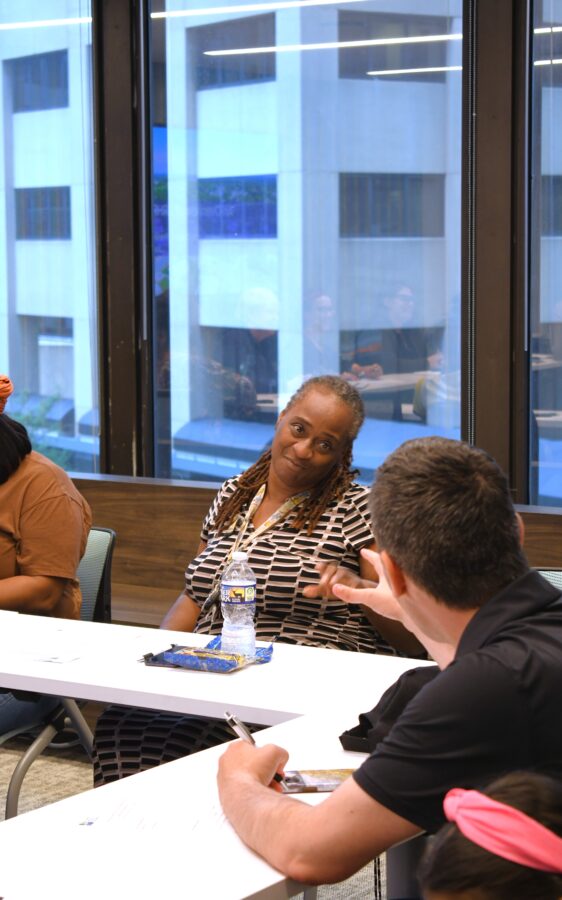
Cohen concluded the roundtable by thanking BRHP for its continued partnership with the Housing Authority of Baltimore City (HABC) and recognized the organization’s role in advancing housing opportunities across Baltimore. Reflecting on Baltimore’s history as the birthplace of redlining, Cohen emphasized that dismantling the legacy of segregation will require the same level of intentionality—and likely even greater effort—as what was once invested in creating it. His remarks reinforced the need for policies that prioritize housing choice, neighborhood reinvestment, and intentional desegregation. With a smile and a nod to shared responsibility, Cohen closed on a hopeful note that, “It’s critically important to keep working together to keep Baltimore the best city on earth.” A fitting reminder that progress takes partnership and pride in the place we all call home.
The initiatives raised during both roundtables reflect a broader housing strategy pursued in partnership between the Mayor’s Office and the Council. Together, these efforts aim to address Baltimore’s affordable housing needs, reduce vacancies, and create pathways to stability and homeownership for those long excluded from opportunity. We thank both Mayor Scott and Council President Cohen for the dialogue and look forward to continuing the collaboration.
Written by: Micah Avery, Special Projects Coordinator with contributions from Adedoyin Adeyele, Communications and Special Projects Intern

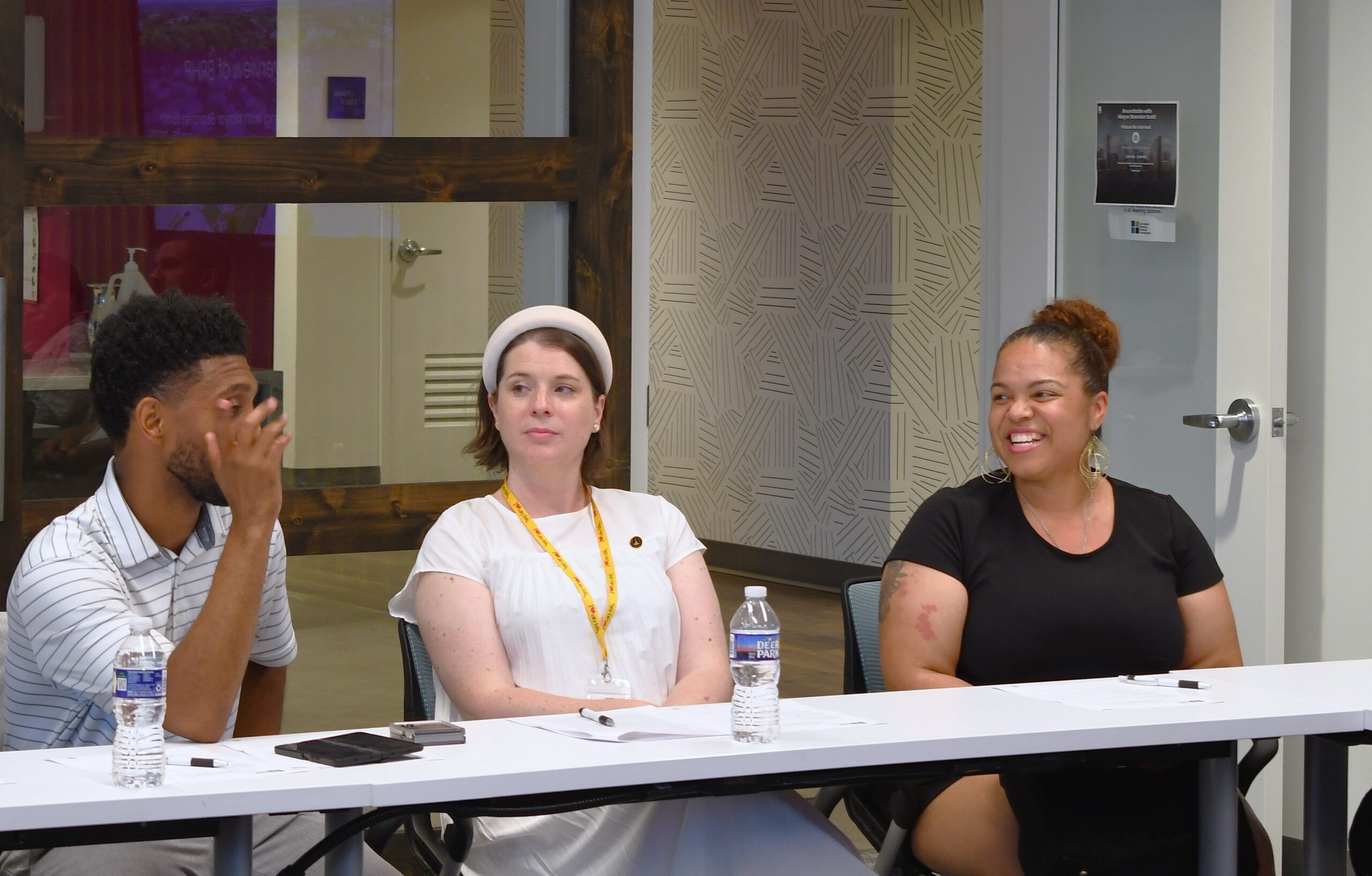

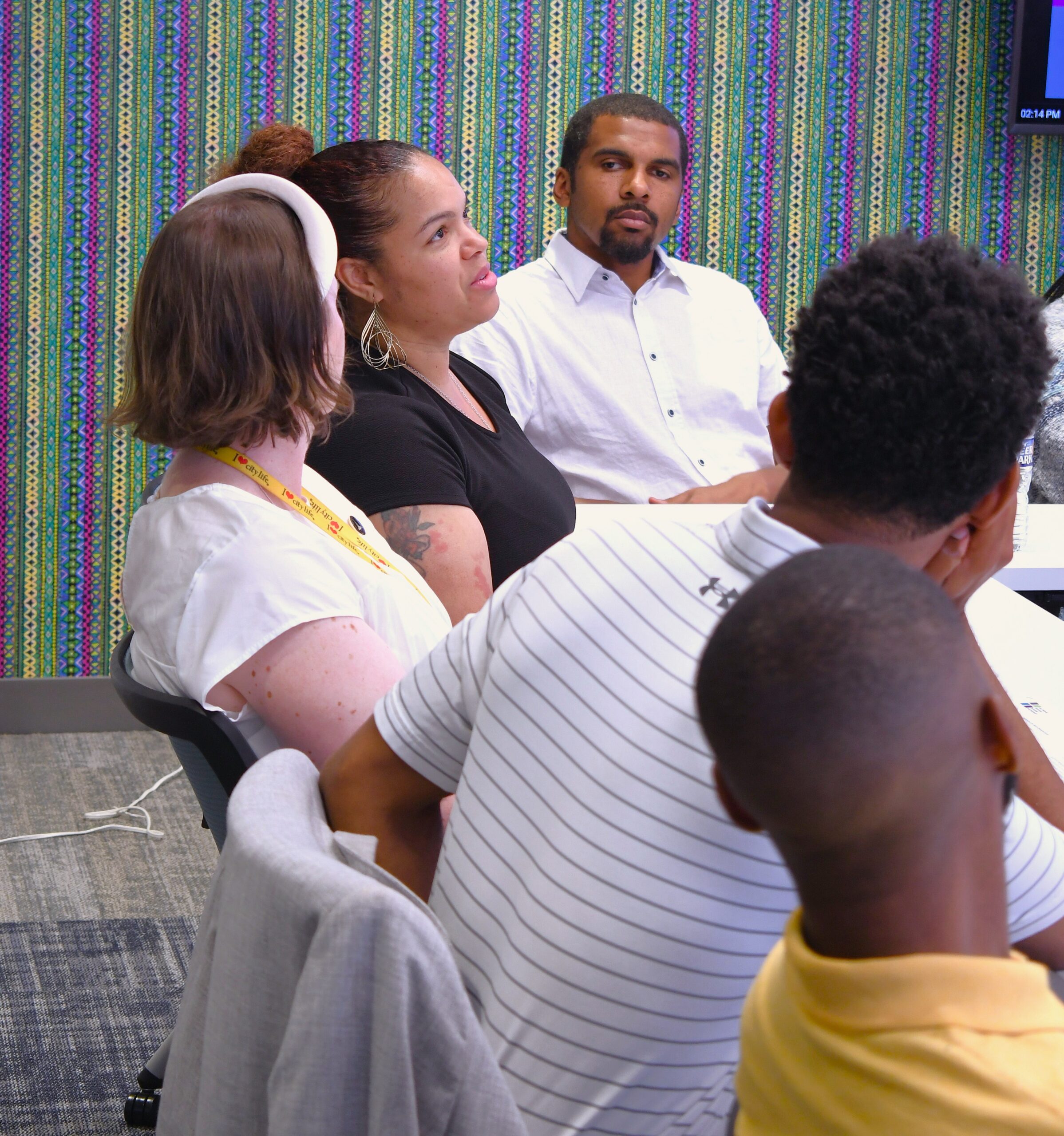

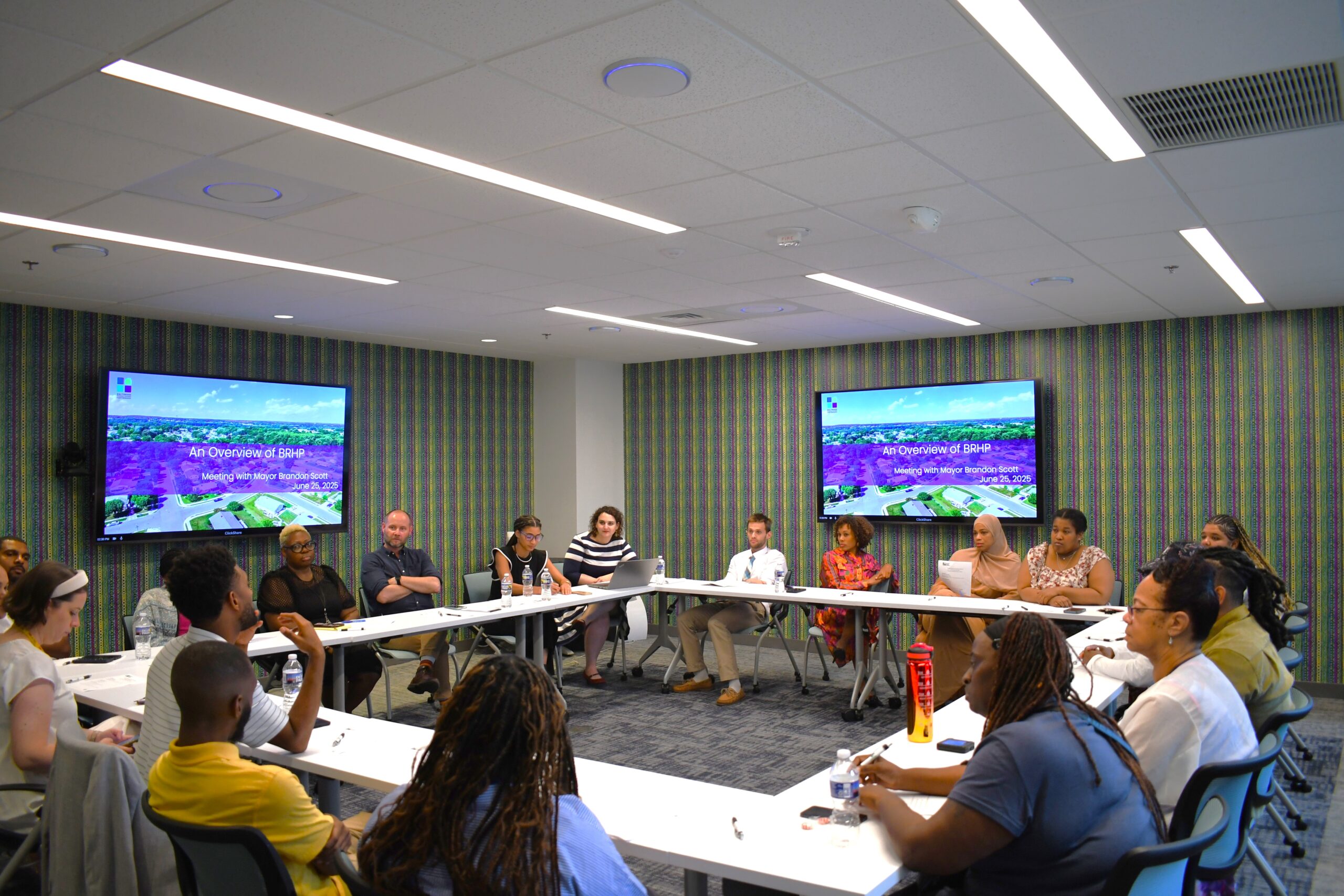

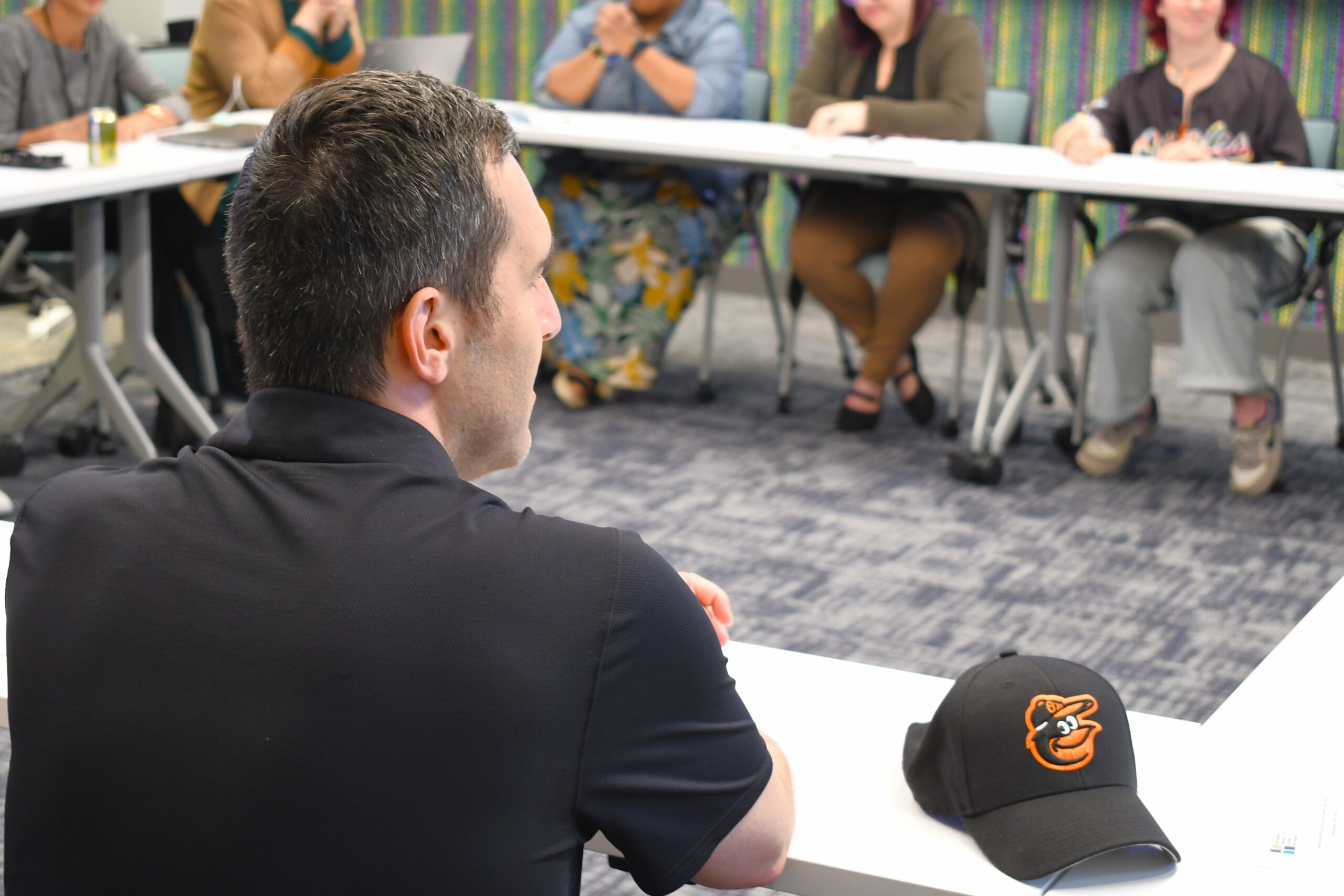



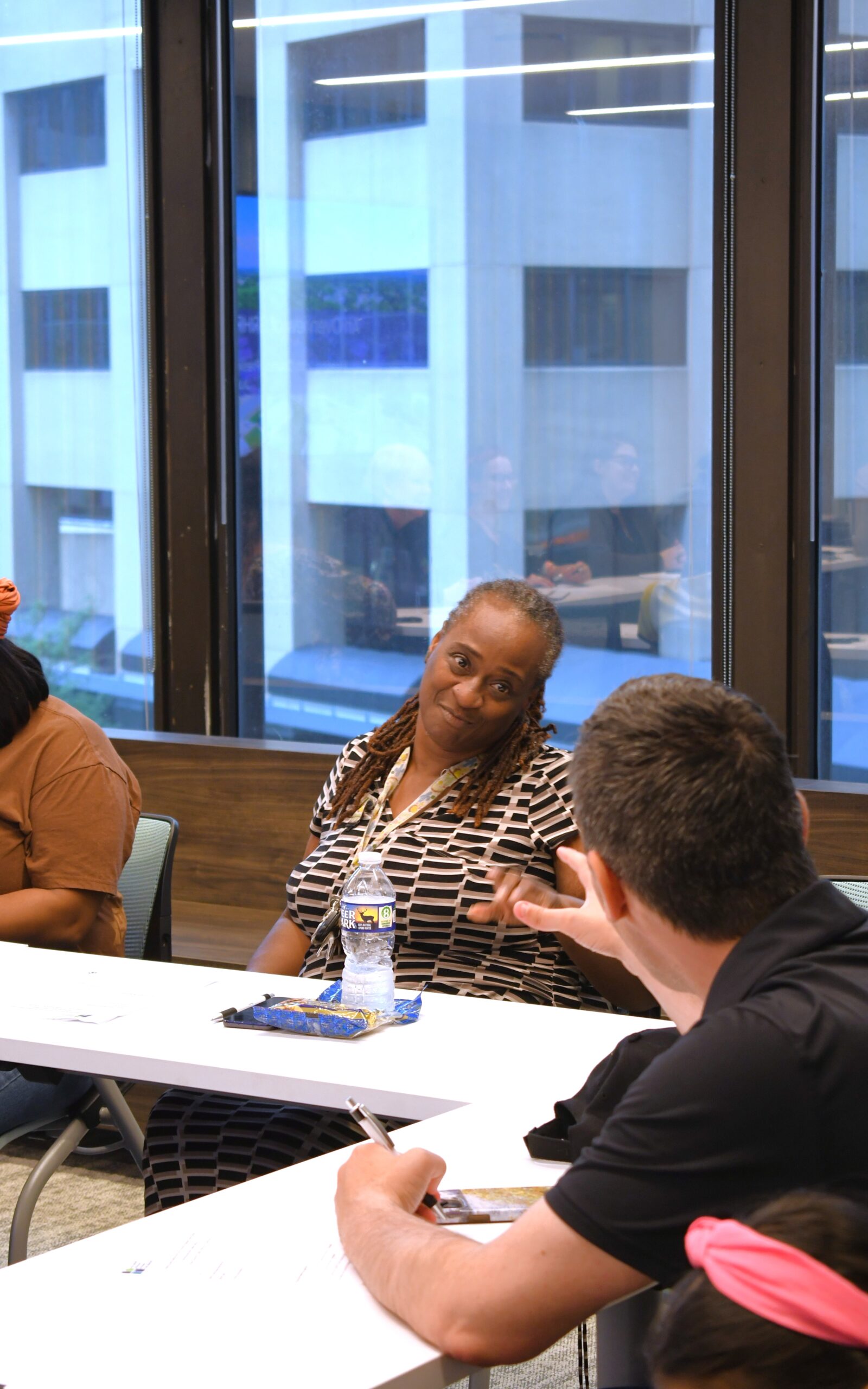
On May 22, 2025, BRHP welcomed Maryland Comptroller Brooke Lierman for a thoughtful and informative community discussion as part of our ongoing BRHP In Conversation series. In a dialogue led by BRHP Executive Director Adria Crutchfield, Comptroller Lierman shared her perspective on the economic and housing issues impacting Marylanders today – highlighting opportunities for building equity, addressing affordability, and strengthening workforce development statewide. The conversation came at a pivotal moment, as Marylanders continue to navigate rising living costs and uncertainty at the federal level. Joining Adria and the Comptroller was an in-person audience consisting of BRHP clients, Board members and staff.
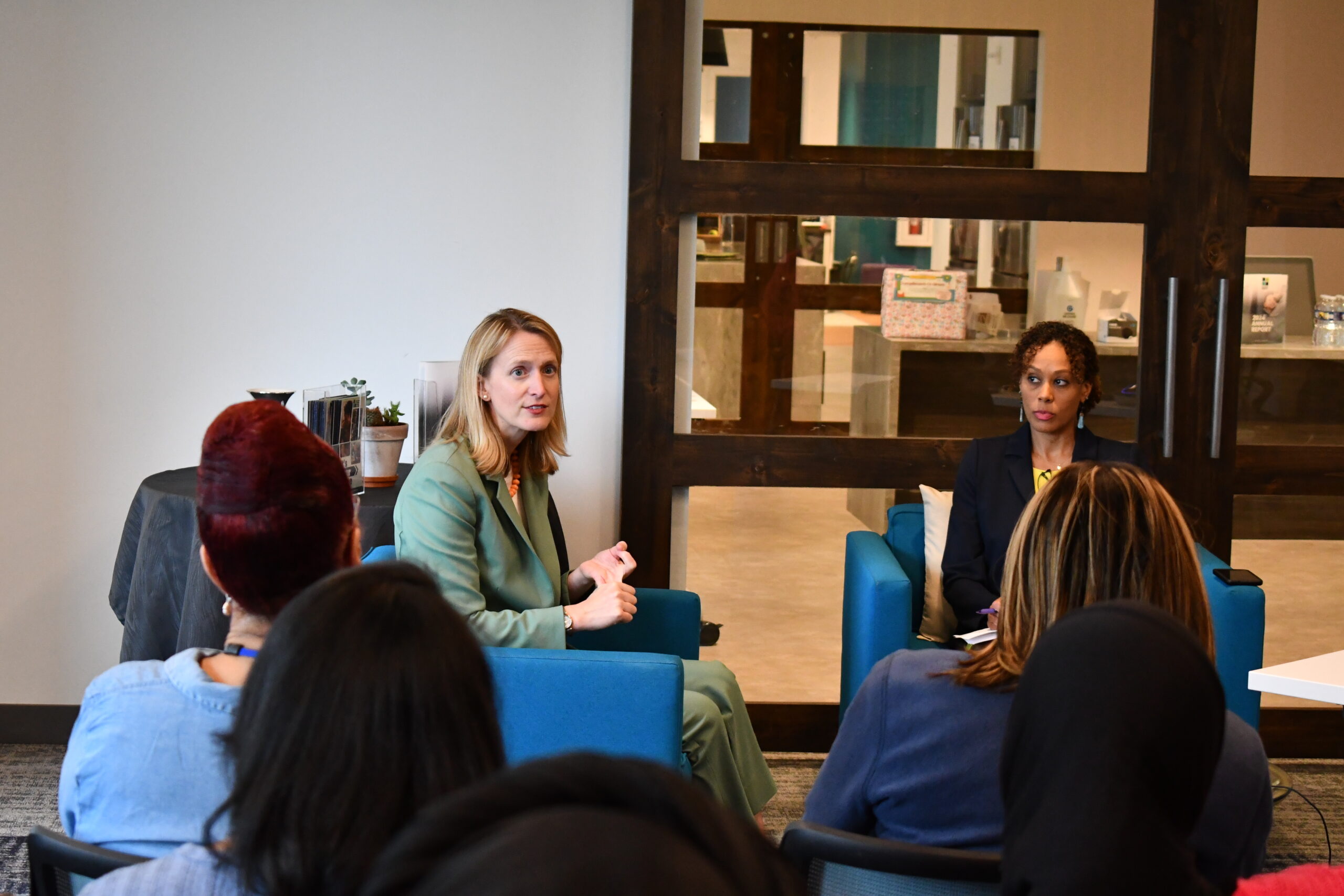
I’m honored to serve in this role so that during my time, we can do as much as possible to work in partnership with you and others… to create a state that’s more equitable, that’s more resilient, and that’s more prosperous, so that every Marylander can really reach their full potential. – Maryland Comptroller Brooke Lierman
State of the Economy Report
Starting the conversation by relaying more about her work and accomplishments as Comptroller, she discussed her office’s State of the Economy Report, which she describes as being born out of a desire to provide Maryland with better economic data and insight, something she found lacking during her time in the House of Delegates. As the state’s elected CFO, Lierman emphasized her role in tracking revenues, balancing the books, and informing budget decisions through the Board of Revenue Estimates.
Comptroller Lierman said her office launched the State of the Economy Report after noticing a troubling trend: Maryland’s revenues were stagnating while costs continued to rise. To understand why, her office spent nine months gathering data, speaking with employers and community leaders, and analyzing economic indicators across the state. Released in January 2024, the report offers a baseline snapshot of Maryland’s post-pandemic economy.
Key findings Comptroller Lierman highlighted include:
Stagnant GDP growth: Maryland’s growth was just 1% compared to 11% nationally over the same period.
Labor shortages: The state had three job openings for every one job seeker, making hiring difficult and slowing economic growth.
Population stagnation: Maryland’s population flatlined, with people leaving for lower-cost states like North Carolina and Florida.
High cost of living: Rising housing costs are the driver of the state’s high cost of living and are pushing people away from Maryland.
Comptroller Lierman noted that this trend marks a national shift—people deciding to move for affordability over opportunity. With housing as the primary driver of cost-of-living concerns, she highlighted its central role in the state’s economic challenges.
Asked to drill down further into the impact of housing on the state’s economy, the Comptroller emphasized that Maryland is facing a significant housing shortage, currently lacking about 90,000 housing units. She pointed out that the state built half as many homes in the 2010s as it did in the 1970s, despite having a larger and growing population.
To help address this, the Comptroller’s office is working on a new report – expected in early fall – on the economic impact of the housing shortage, following previous reports on childcare and immigration.
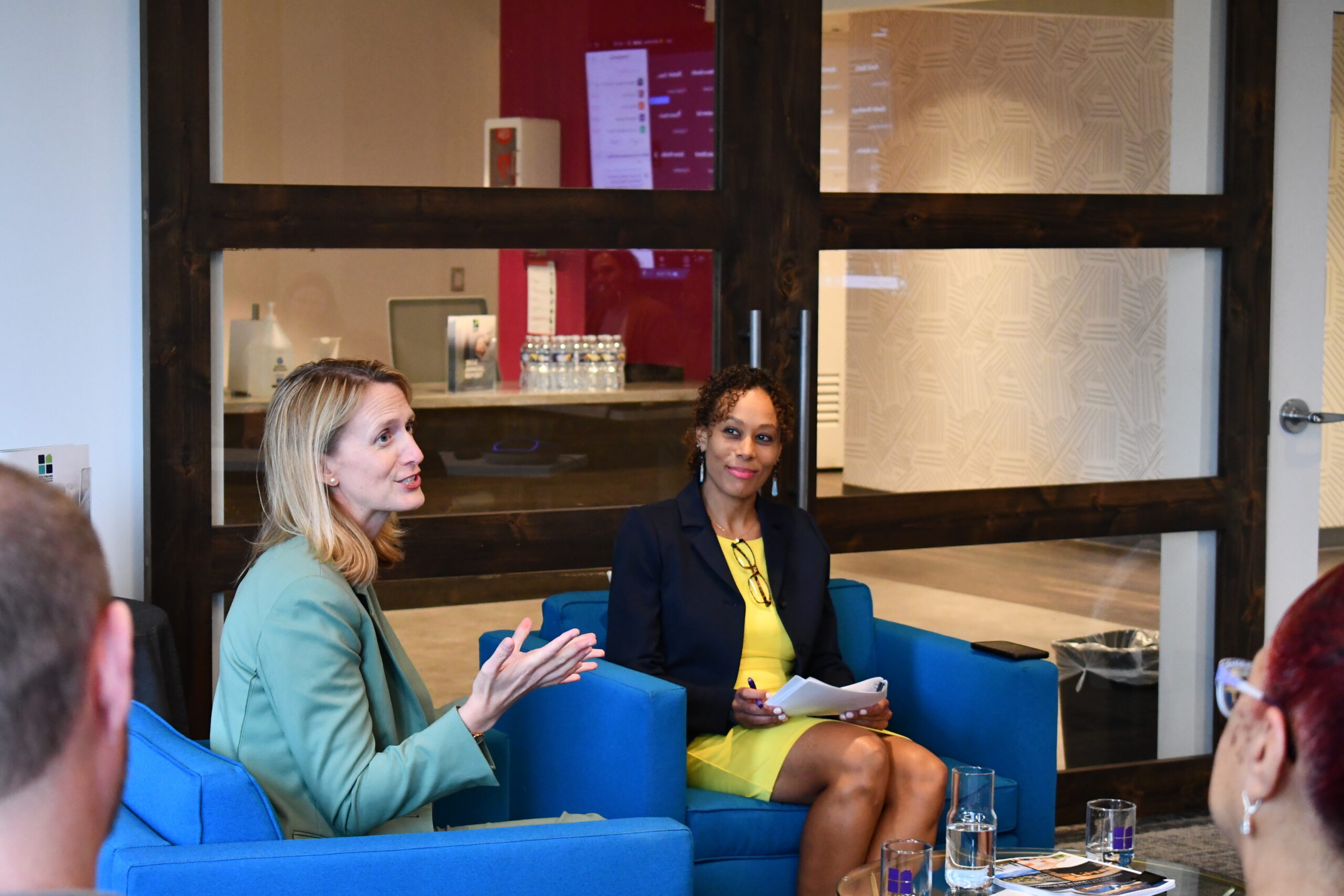
Federal Policy, Local Impact
Asked to discuss the impacts her office has seen from recent actions of the White House and federal government, Comptroller Lierman highlighted that Maryland has long benefited from its close ties to the federal government – with roughly 250,000 households receiving federal wages, over $20 billion in annual federal grants, and about 10% of the state’s GDP tied to federal contracts. She warned that reductions in the federal workforce and further federal cuts pose significant risks to the state’s economy.
To prepare for this possibility, she stressed the importance of fully understanding Maryland’s economic exposure to the federal government, highlighting the need to assess which areas are most vulnerable and to plan a strategic shift toward strengthening the private sector. Specifically, she pointed to Maryland’s highly educated federal workforce as a key asset that must be retained. This will require coordination with the state’s growing biotech and life sciences sectors, as well as investment in emerging “lighthouse” industries like quantum, cyber, and biotech.
The Comptroller’s office is producing a detailed report, set for release in June, to quantify the full economic impact of the federal presence in Maryland. This analysis will serve as a foundation for future strategies to pivot and stabilize the state’s economy amidst possible federal funding and employment decline.
Broadening Employment Opportunities
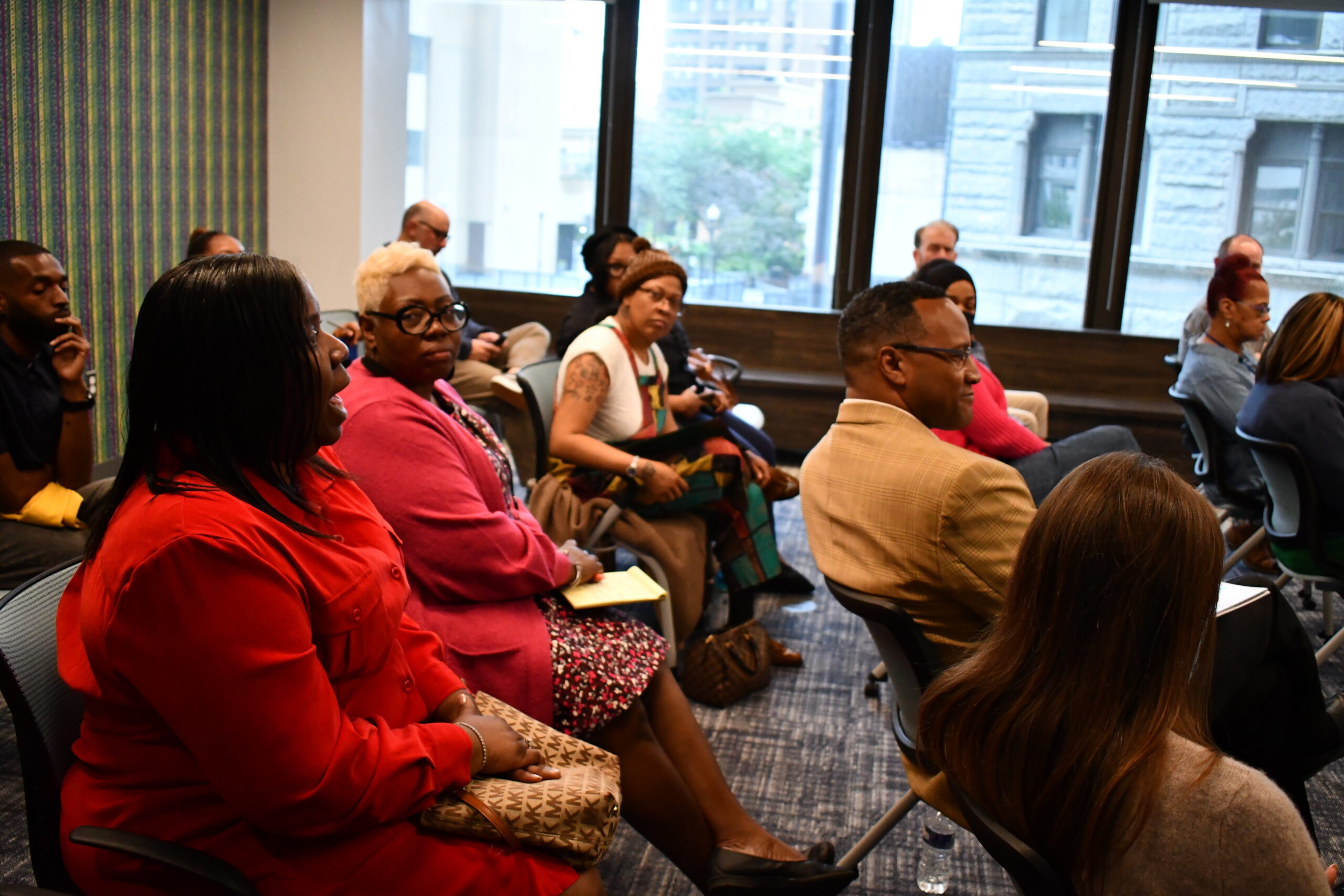
“Ninety-five percent of the jobs in my agency do not require a college degree,” she said. “We hire and train you. That’s a huge part of making state employment more accessible.” – Maryland Comptroller Brooke Lierman
In response to audience questions about economic mobility, Comptroller Lierman shared details on Maryland’s initiatives to widen employment pipelines. She noted that the state is investing in apprenticeships, partnering with local governments and private sector employers, and eliminating unnecessary educational barriers in public sector hiring.
“Ninety-five percent of the jobs in my agency do not require a college degree,” she said. “We hire and train you. That’s a huge part of making state employment more accessible.”
This message resonated with audience members who raised concerns about economic access for families already living in Maryland communities. The Comptroller pointed to the importance of ensuring that new residents and long-time Marylanders alike are supported in housing and job access.
A Shared Commitment to Equity
As the event concluded, Comptroller Lierman reflected on her deep ties to Baltimore City and her appreciation for BRHP’s mission, “I’m proud to call Baltimore home,” she said. “I’m honored to serve in this role so that during my time, we can do as much as possible to work in partnership with you and others… to create a state that’s more equitable, that’s more resilient, and that’s more prosperous, so that every Marylander can really reach their full potential.”
Adria closed the conversation with a call to action: “To our clients, participant members, and community – stay involved. Read what we send you. Show up when we ask for action. That’s going to go a long way towards changing things for the better again.”
We thank Comptroller Lierman for her data-informed approach to shaping policy, her commitment to uplifting all Marylanders, and her bold leadership—and we thank all who joined us for this important conversation. To stay informed about future BRHP events and opportunities to get involved, follow us on social media and subscribe to our newsletter.
Listen on YouTube!
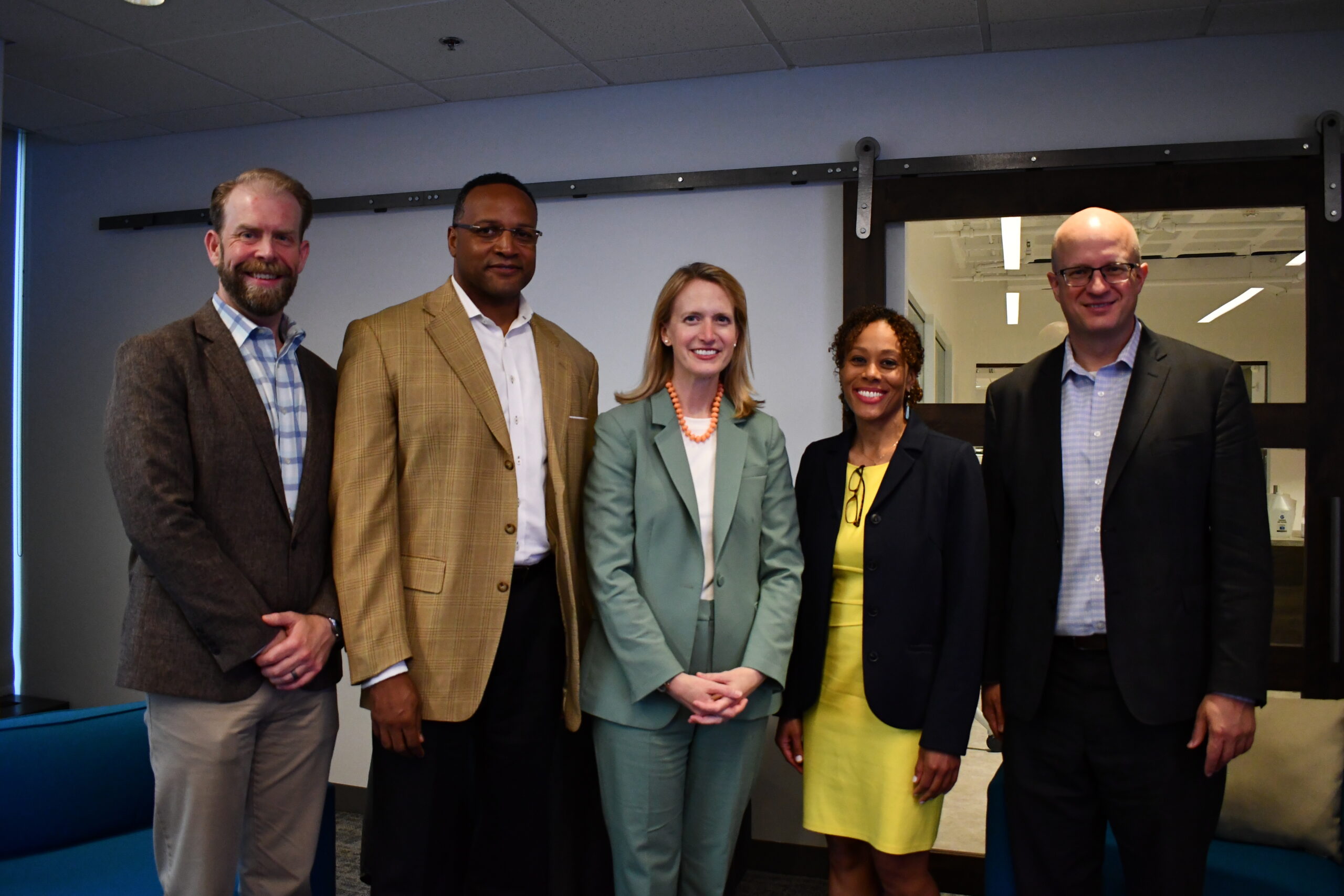
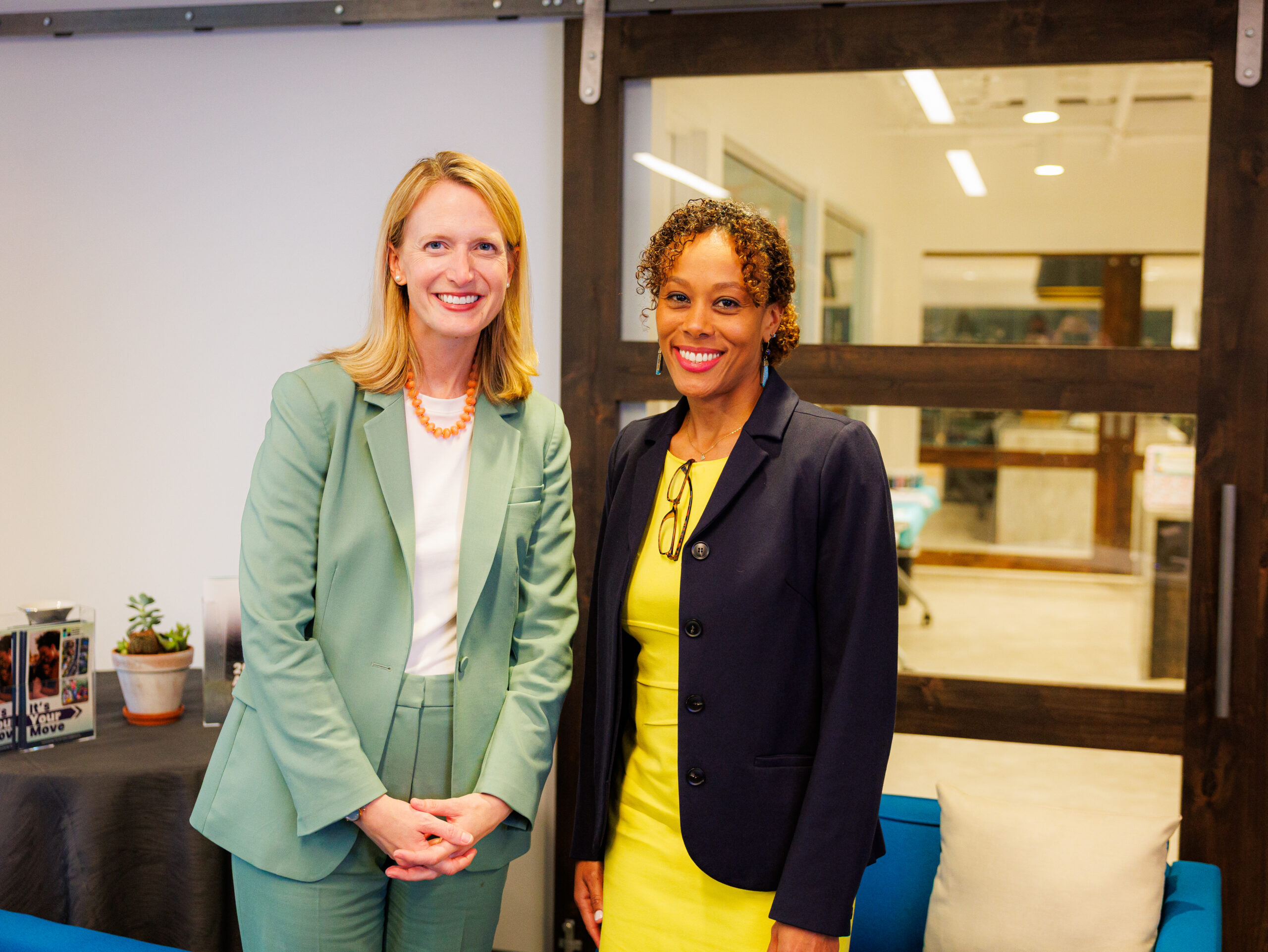

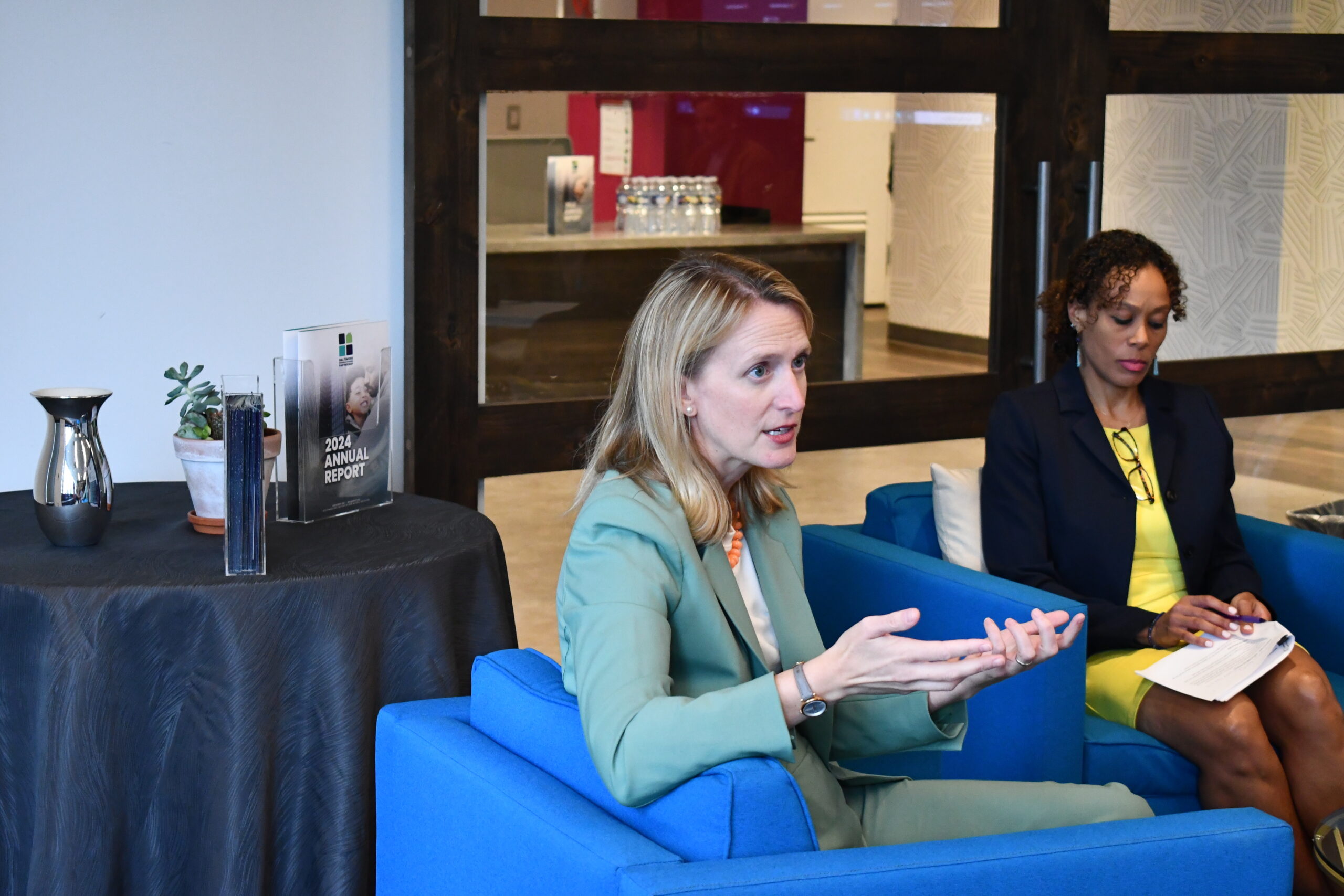

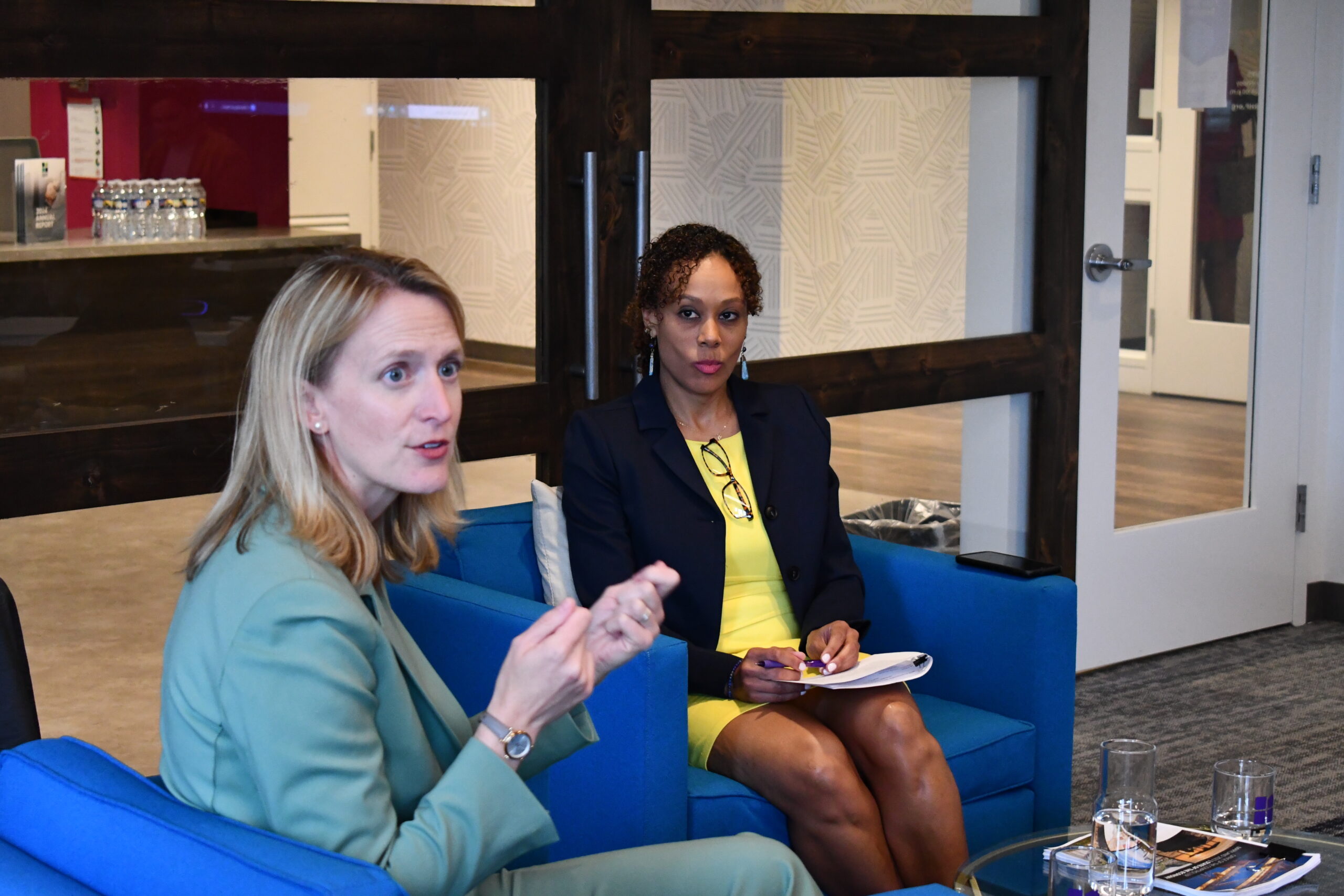
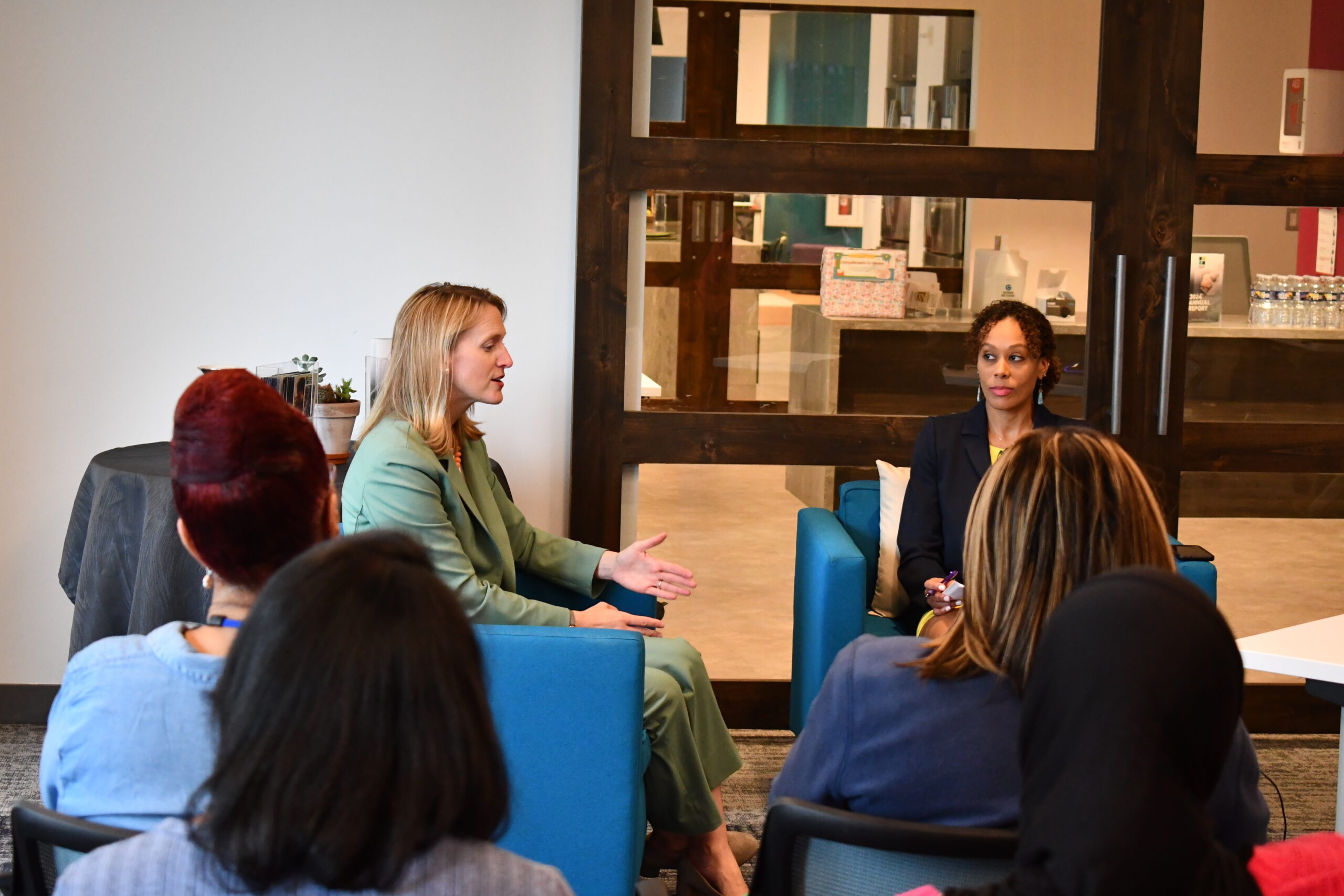
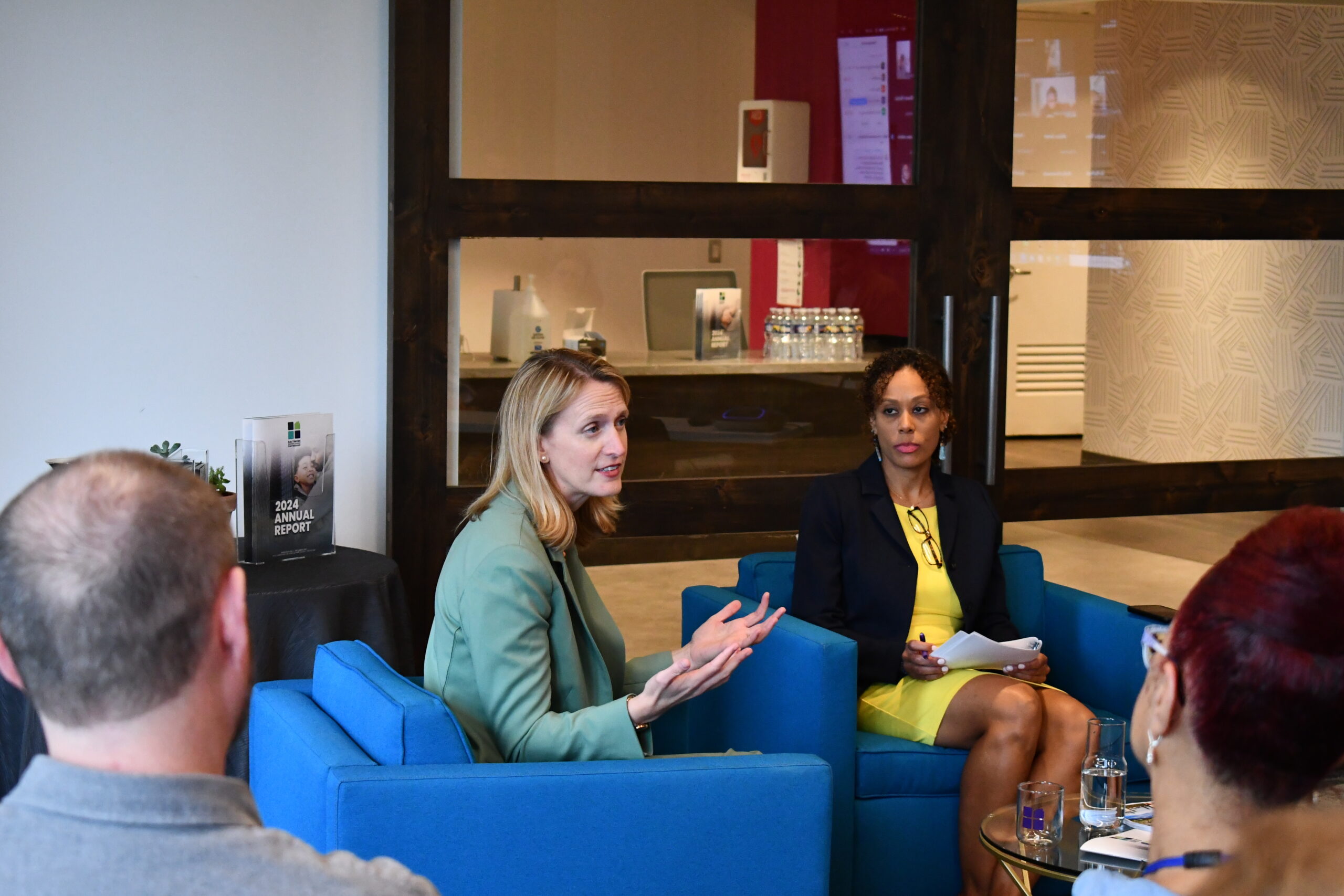
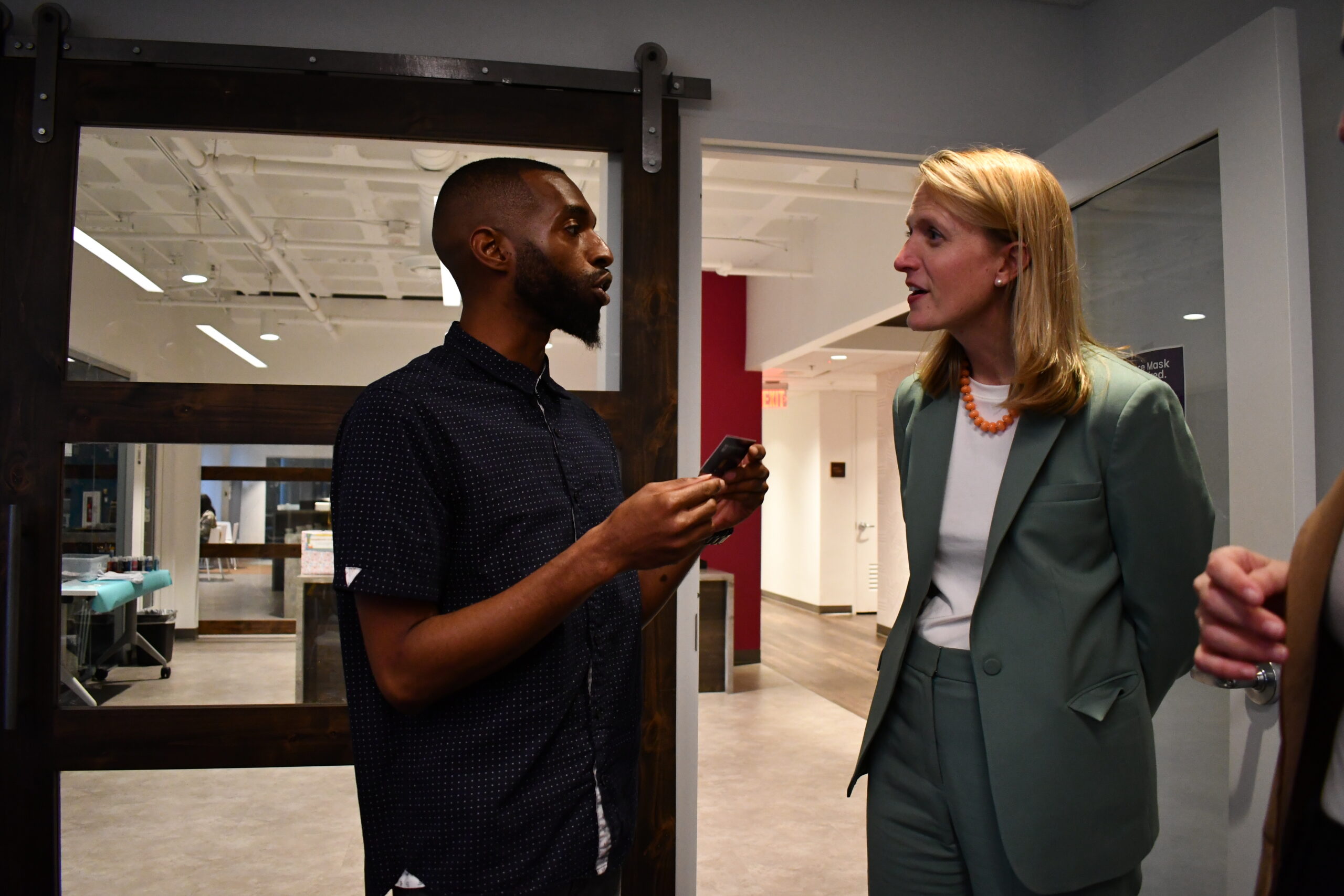
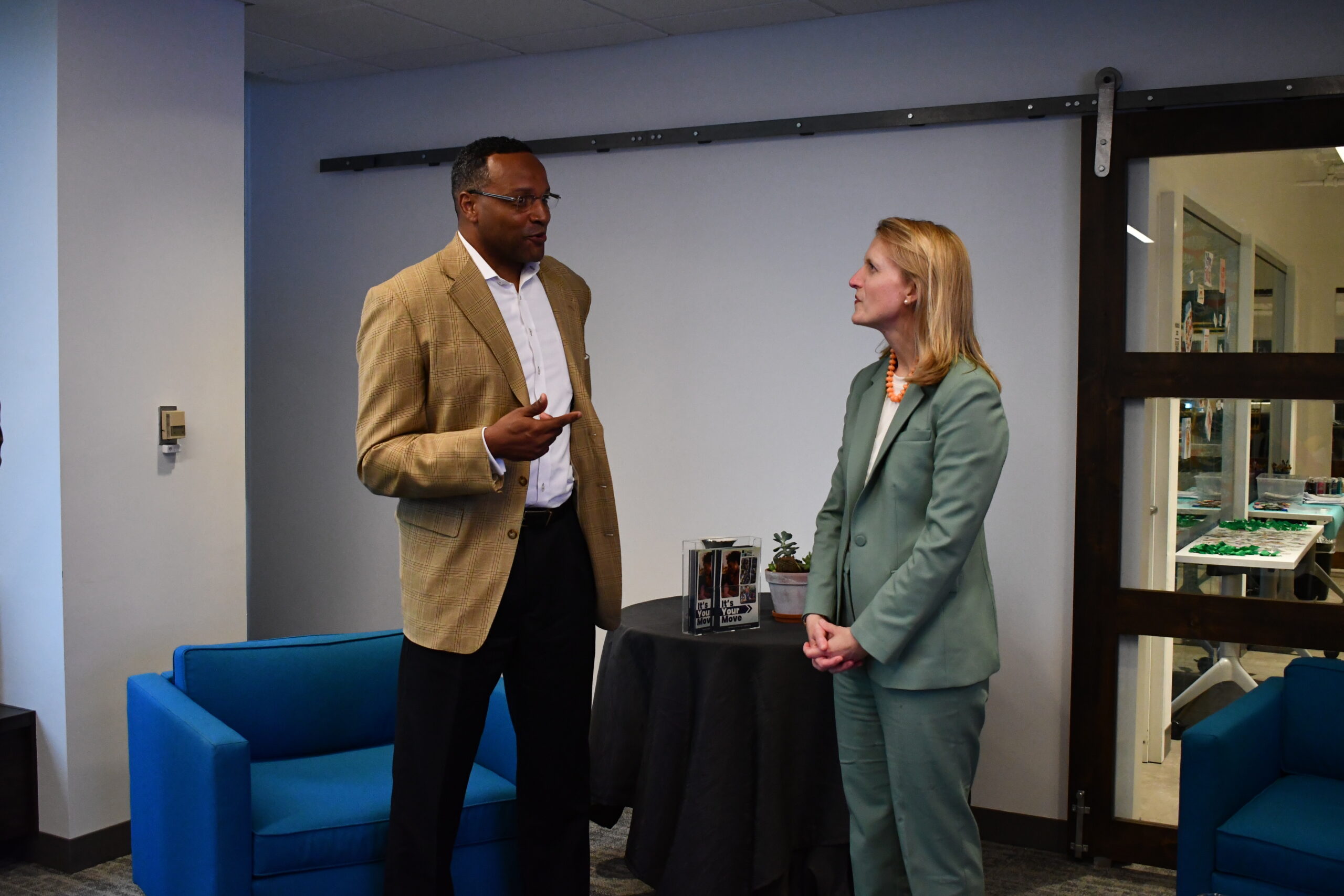

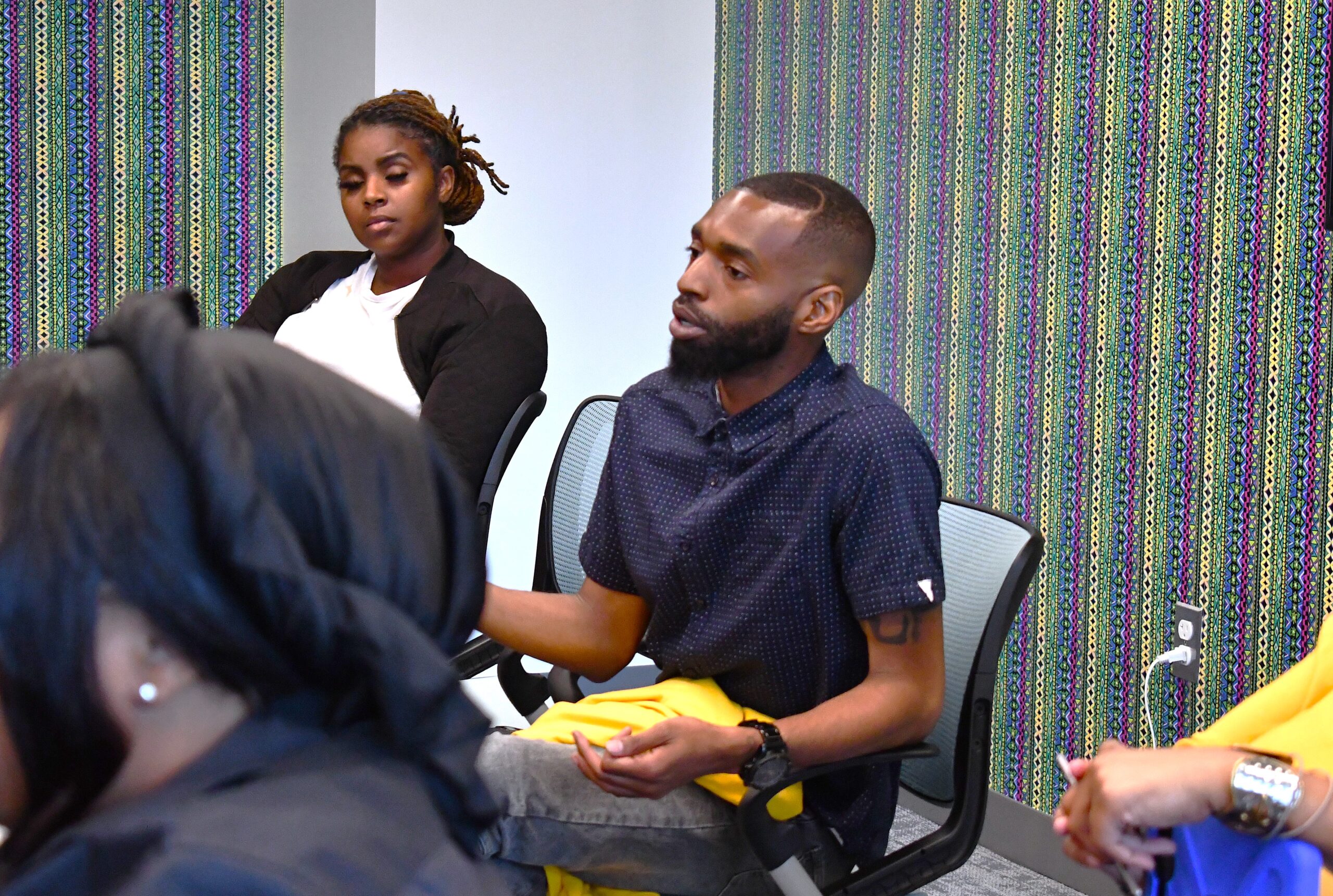
On March 14, 2025, Congress passed a new continuing resolution spending plan to avert a federal government shutdown. To reaffirm, we are not anticipating any disruption to our ability to provide housing assistance to the over 4,388 families we serve at this time. We will continue to provide updates as new information is available.
Current Federal Budget Status
With the passing of the new spending plan, funding will be extended through September 30, 2025 —the end of the federal fiscal year, allowing for focus and planning to shift to FY 2026.
Impact on Housing Assistance
The continuing resolution passed by Congress included additional funding for Tenant Based Rental Assistance (like the Housing Choice Voucher program) in an effort to maintain current service levels. Once again, we do not anticipate a disruption in BRHP services at this time.
Looking Ahead
Beyond September, the long-term outlook for federal funding remains unclear. However, rental assistance programs have not been a primary target for budget cuts so far. It is important that decision-makers hear from the communities they serve about the critical need for sustained and increased funding for housing assistance in order to ensure that remains the case.
We encourage you to contact your Congressional representatives and the Secretary of HUD to advocate for full funding to renew all existing HCV program contracts. You can find their contact information below.
Thank you for your attention to this important matter – BRHP remains committed to supporting you and will continue to provide updates via email, social media, and on our website as new information becomes available.
Senate approves funding bill hours before shutdown deadline, sending to Trump for signature – Associated Press
Policymaker Contacts
Maryland Congressional Delegation
Senators
ANGELA D. ALSOBROOKS, U.S. Senator from Maryland
(202) 224-4524
Contact: Share your opinion – Senator Angela Alsobrooks
CHRISTOPHER VAN HOLLEN, JR., Esq., U.S. Senator from Maryland
(202) 224-4654
Contact: Email Senator Van Hollen | U.S. Senator Chris Van Hollen
Representatives serving the Baltimore Region
ANDREW P. HARRIS, M.D., U.S. Representative, 1st Congressional District (Cecil, Kent, QueenAnne’s, Caroline, Talbot, Dorchester, Wicomico, Worcester & Somerset counties; & parts of Baltimore, Carroll & Harford counties), Maryland)
(202) 225-5311
Contact: Address Lookup | Congressman Andy Harris
JOHN A. OLSZEWSKI, JR., U.S. Representative, 2nd Congressional District (parts of Baltimore County, Baltimore City, & Carroll County), Maryland
(202) 225-3061
Contact: Address Lookup | Representative Johnny Olszewski
SARAH K. ELFRETH, U.S. Representative, 3rd Congressional District (parts of Anne Arundel, Baltimore, Howard, & Montgomery counties, & Baltimore City), Maryland
(202) 225-4016
Contact: Address Lookup | Representative Sarah Elfreth
GLENN F. IVEY, Esq., U.S. Representative, 4th Congressional District (parts of Anne Arundel & Prince George’s counties), Maryland
(202) 225-8699
Contact: Address Lookup | Congressman Glenn Ivey
STENY HAMILTON HOYER, Esq, U.S. Representative, 5th Congressional District (Calvert, Charles, St. Mary’s counties, & parts of Anne Arundel & Prince George’s counties), Maryland
(202) 225-4131
Contact: Address Lookup | Congressman Steny Hoyer
KWEISI MFUME, U.S. Representative, 7th Congressional District (parts of Baltimore City & Baltimore County), Maryland
(202) 225-4741
Contact: Address Lookup | Representative Kweisi Mfume
U.S. Department of Housing and Urban Development
SCOTT TURNER, Secretary
(202) 708-1112
Contact: Webform Contact
JEFFREY D. LITTLE, General Deputy Assistant Secretary for Housing
(202) 708-2601
Contact: jeffrey.d.little@hud.gov
| Not sure who represents you, want to confirm or look up additional information? You can use your address to find your representatives and find additional information at these links: U.S. Senate, U.S. House of Representatives and U.S. Department of Housing and Urban Development leadership. |
We understand that recent federal budget discussions have raised concerns about the continuity of BRHP’s housing assistance services. We want to assure you that, at this time, we do not anticipate any disruptions in our ability to provide assistance to the 4,388 families we serve. However, given the uncertainties surrounding future federal funding, we would like to share the latest updates and what they may mean for you.
Current Federal Budget Status
The continuing resolution (CR) that currently funds the federal government is set to expire on March 14. If Congress does not pass a new spending plan, a partial government shutdown could occur. BRHP is closely monitoring the situation.
Congressional leaders are working to pass a year-long CR that would extend funding at current levels until September 30, 2025—the end of the federal fiscal year. If passed, this would prevent a partial government shutdown and shift focus to planning for FY 2026.
Impact on Housing Assistance
While long-term CRs typically result in reduced services because they do not account for rising costs, the spending bill drafted by the House of Representatives includes additional funding for Tenant Based Rental Assistance (such as the Housing Choice Voucher (HCV) program), to help maintain current service levels. However, this funding proposal has not yet been approved by Congress.
In the event Congress does not pass a CR in time, BRHP has reserves in place to ensure housing assistance payments continue during a temporary, short-term federal government shutdown.
Looking Ahead
Beyond September, the long-term outlook for federal funding remains unclear. However, rental assistance programs have not been a primary target for budget cuts so far. It is important that decision-makers hear from the communities they serve about the critical need for sustained and increased funding for housing assistance in order to ensure that remains the case.
We encourage you to contact your Congressional representatives and the Secretary of HUD to advocate for full funding to renew all existing HCV program contracts. You can find their contact information below.
BRHP remains committed to supporting you and will continue to provide updates via email, social media, and on our website as new information becomes available. Thank you for your attention to this important matter.
Policymaker Contacts
Maryland Congressional Delegation
Senators
ANGELA D. ALSOBROOKS, U.S. Senator from Maryland
(202) 224-4524
Contact: Share your opinion – Senator Angela Alsobrooks
CHRISTOPHER VAN HOLLEN, JR., Esq., U.S. Senator from Maryland
(202) 224-4654
Contact: Email Senator Van Hollen | U.S. Senator Chris Van Hollen
Representatives serving the Baltimore Region
ANDREW P. HARRIS, M.D., U.S. Representative, 1st Congressional District (Cecil, Kent, QueenAnne’s, Caroline, Talbot, Dorchester, Wicomico, Worcester & Somerset counties; & parts of Baltimore, Carroll & Harford counties), Maryland)
(202) 225-5311
Contact: Address Lookup | Congressman Andy Harris
JOHN A. OLSZEWSKI, JR., U.S. Representative, 2nd Congressional District (parts of Baltimore County, Baltimore City, & Carroll County), Maryland
(202) 225-3061
Contact: Address Lookup | Representative Johnny Olszewski
SARAH K. ELFRETH, U.S. Representative, 3rd Congressional District (parts of Anne Arundel, Baltimore, Howard, & Montgomery counties, & Baltimore City), Maryland
(202) 225-4016
Contact: Address Lookup | Representative Sarah Elfreth
GLENN F. IVEY, Esq., U.S. Representative, 4th Congressional District (parts of Anne Arundel & Prince George’s counties), Maryland
(202) 225-8699
Contact: Address Lookup | Congressman Glenn Ivey
STENY HAMILTON HOYER, Esq, U.S. Representative, 5th Congressional District (Calvert, Charles, St. Mary’s counties, & parts of Anne Arundel & Prince George’s counties), Maryland
(202) 225-4131
Contact: Address Lookup | Congressman Steny Hoyer
KWEISI MFUME, U.S. Representative, 7th Congressional District (parts of Baltimore City & Baltimore County), Maryland
(202) 225-4741
Contact: Address Lookup | Representative Kweisi Mfume
U.S. Department of Housing and Urban Development
SCOTT TURNER, Secretary
(202) 708-1112
Contact: Webform Contact
JEFFREY D. LITTLE, General Deputy Assistant Secretary for Housing
(202) 708-2601
Contact: jeffrey.d.little@hud.gov
| Not sure who represents you, want to confirm or look up additional information? You can use your address to find your representatives and find additional information at these links: U.S. Senate, U.S. House of Representatives and U.S. Department of Housing and Urban Development leadership. |
On February 18, BRHP Executive Director Adria Crutchfield testified in support of SB 677/HB 896 to remove barriers to accessing quality housing for families with housing assistance.
Learn more about SB 677/HB 896 by visiting the Maryland General Assembly’s website and reading the testimony below.